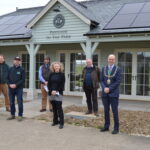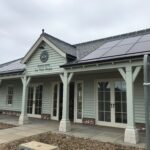In addition to the solar panels, the Alcohol Education Trust also decided to invest in a Tesla Powerwall battery. This battery storage allows them to make the most of the energy they are generating. The Powerwall stores energy generated from the panels (up to 13.5 kWh) which can then be used when they are not generating on very cloudy days or at night.
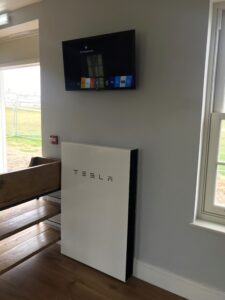 The financial savings from solar PV depend on how much of the energy generated is used and how much needs to be exported to the grid. This is because the price you pay to import electricity from the grid is significantly higher than the price you get paid for exporting/selling electricity to the grid.
The financial savings from solar PV depend on how much of the energy generated is used and how much needs to be exported to the grid. This is because the price you pay to import electricity from the grid is significantly higher than the price you get paid for exporting/selling electricity to the grid.
Battery storage gives greater control over how and when you use the energy you generate, allowing you to replace electricity bought from the grid with the free electricity your panels are generating. It also provides a back-up in the case of power cuts and ensures the café’s fridges and freezers keep running.
Although batteries are currently expensive, the cost of this technology is falling and it is expected to become more affordable in the coming years as battery systems are more widely adopted.


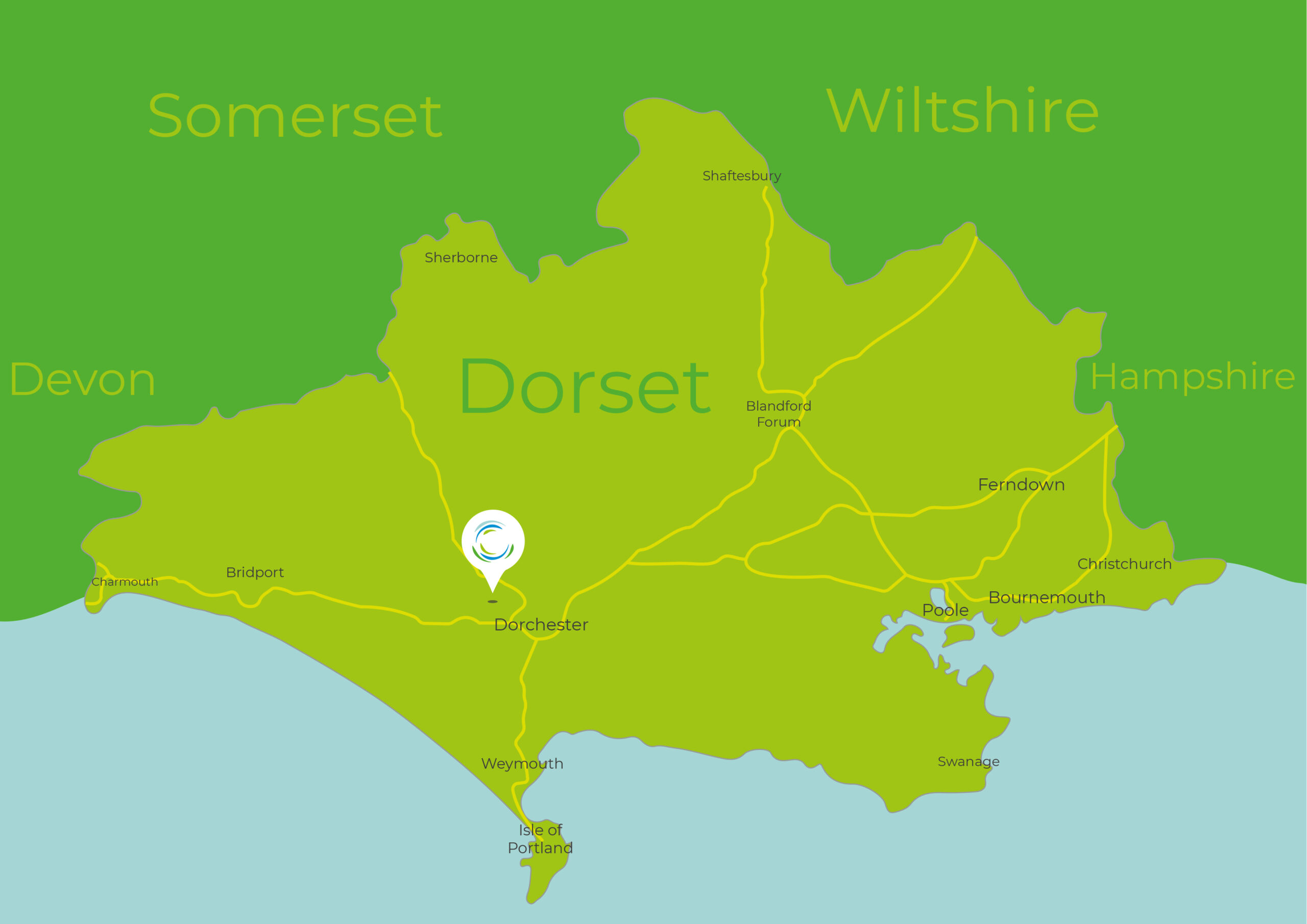
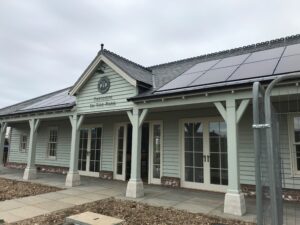
 The financial savings from solar PV depend on how much of the energy generated is used and how much needs to be exported to the grid. This is because the price you pay to import electricity from the grid is significantly higher than the price you get paid for exporting/selling electricity to the grid.
The financial savings from solar PV depend on how much of the energy generated is used and how much needs to be exported to the grid. This is because the price you pay to import electricity from the grid is significantly higher than the price you get paid for exporting/selling electricity to the grid. Mindful that the burning of gas will eventually need to be phased out, the Alcohol Education Trust were keen to avoid connecting their new pavilion to the gas network. This left them with two choices for heating: electric heaters or a heat pump system. To further reduce the environmental impact of the building, the charity opted to install an air-source heat pump. The high levels of insulation in the building will be well suited to a heat pump which will use electricity to provide heating far more efficiently than the standard electric panel radiators.
Mindful that the burning of gas will eventually need to be phased out, the Alcohol Education Trust were keen to avoid connecting their new pavilion to the gas network. This left them with two choices for heating: electric heaters or a heat pump system. To further reduce the environmental impact of the building, the charity opted to install an air-source heat pump. The high levels of insulation in the building will be well suited to a heat pump which will use electricity to provide heating far more efficiently than the standard electric panel radiators.



